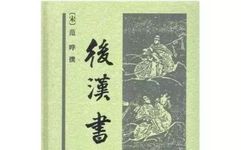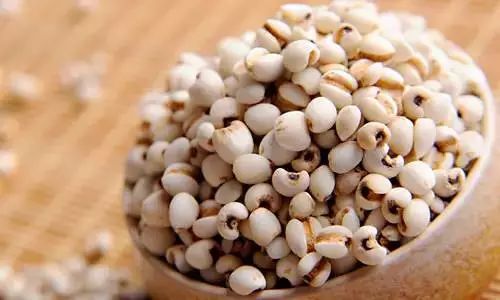
Coix Seed (Yi Yi Ren), also known as Job’s Tears, Coix Lacryma-jobi, Chinese Pearl Barley, Hato Mame, Yi Mi, Qi Shi, Yi Zhu Zi, Cao Zhu Zhu, Hui Hui Mi, Mi Ren, and Liuguzai, is a commonly used herb in Traditional Chinese Medicine (TCM) and a widely consumed food. It has a sweet, bland, and slightly cold nature, promoting diuresis and reducing swelling, strengthening the spleen and eliminating dampness, relaxing the muscles and alleviating pain, and clearing heat and expelling pus. It is a frequently used diuretic and dampness-eliminating herb.
Legend and Historical Anecdote
According to the Book of the Later Han: Biography of Ma Yuan, during the Eastern Han Dynasty, the southern regions were plagued by “miasma”, causing patients to experience numbness in their hands and feet, and lower limb edema, leading to generalized swelling. As this disease often began in the lower limbs, it was referred to in TCM as “Beriberi”.
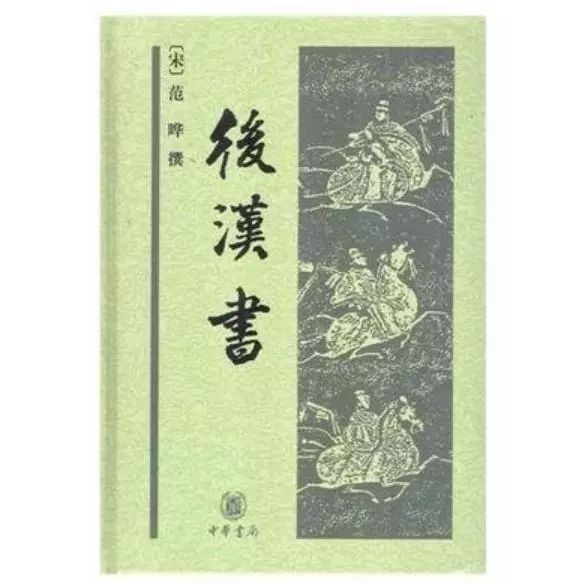
Ma Yuan, known as the General of the Fubo, was tasked with pacifying the southern rebellions, where many soldiers were afflicted by this condition. The General utilized folk dietary remedies, curing numerous officials and soldiers with Coix Seed. After a great victory in the southern campaign, General Fubo returned triumphantly with a cartload of Coix Seed to introduce it to the northern regions, claiming that Coix Seed “clears the body and reduces desires, thus overcoming miasma.”
However, after Ma Yuan’s death, the supervising officer Liang Song, envious of his talents, falsely accused him of hoarding a large amount of pearls and rhinoceros horns, leading to the Emperor Guangwu’s great anger. He ordered the retrieval of the “New Xi Marquis Seal” granted to Ma Yuan, forcing his body to be buried in the west of the city, with no guests daring to mourn him.
Subsequently, the term “the slander of Coix Seed” came to represent this incident, with Bai Juyi writing, “Coix Seed tempts and worries Ma Fubo,” and Chen Zi’ang’s poem stating, “Who understands the slander of Coix Seed?”
Functions and Effects
1. Coix Seed promotes diuresis and reduces swelling, strengthens the spleen and eliminates dampness, relaxes the muscles and alleviates pain, and clears heat and expels pus, making it a commonly used diuretic and dampness-eliminating herb.
2. Coix Seed is beneficial for the skin: it smooths the skin, reduces wrinkles, and eliminates pigmentation spots. It has significant effects on facial acne and rough skin, and it also has the ability to absorb ultraviolet rays; its extracts added to cosmetics can achieve sun protection and UV-blocking effects.
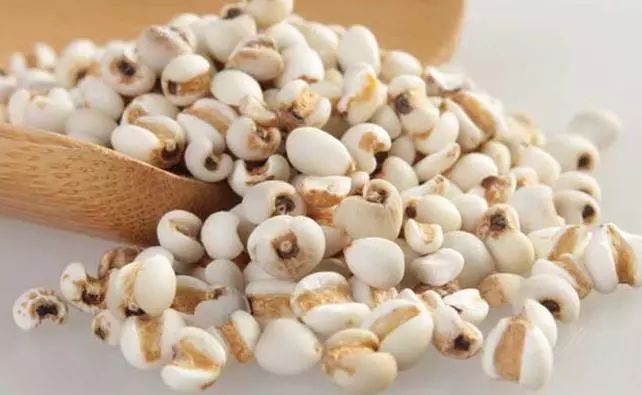
3. Coix Seed is beneficial for hair: it nourishes the hair, prevents hair loss, and makes hair smooth and soft.
4. Coix Seed is a type of grain that can be boiled or stir-fried, which is more conducive to gastrointestinal absorption. Those who often feel fatigued and weak can consume more. Coix Seed contains rich proteolytic enzymes that can soften the skin’s keratin, and long-term consumption can be effective for skin warts and roughness.
Consumption Methods
1. Coix Seed Soup
[Ingredients] 1 cup of red beans, 1 cup of Coix Seed, 80 grams of rock sugar.
[Method]
1. Rinse the red beans and Coix Seed together and place them in a pot.
2. Add 8 cups of water, bring to a boil over high heat, then reduce to low heat and simmer for about 30 minutes until the beans are soft and mushy, then add rock sugar to dissolve.
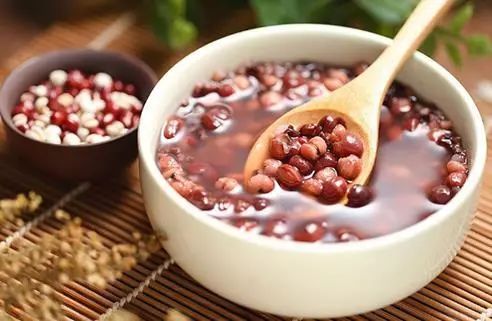
2. Coix Seed and Lotus Leaf Tea
[Ingredients] 10 grams of Coix Seed, 10 grams of fresh hawthorn, 5 grams of dried tangerine peel, and 60 grams of dried lotus leaves, with 500 milliliters of hot water.
[Method]
1. Rinse the Coix Seed and hawthorn with water to remove impurities and drain. 2. Grind all tea ingredients into a fine powder in a mortar and place them in a teapot.
3. Pour in hot water, mix well, and let it sit for 2 minutes before serving.
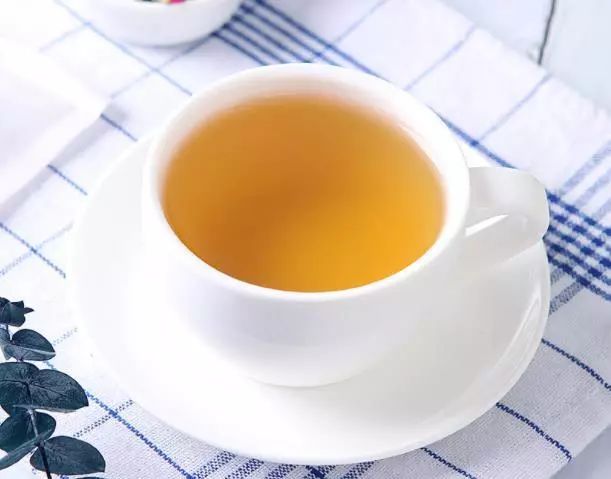
3. Lotus Seed Beauty Soup
[Ingredients] Lotus seeds, red dates, gorgon fruit, Coix Seed, longan meat, and honey.
[Method]
1. Soak the lotus seeds, red dates, gorgon fruit, and Coix Seed in clean water for 30 minutes; 2. Then place the ingredients and longan meat in a pot and simmer over low heat until soft, adding honey to taste.
Consumption Precautions
1. The high viscosity of carbohydrates in Coix Seed may hinder digestion if consumed in excess. Those with weak stomachs can cook Coix Seed with other ingredients, but should avoid consuming it alone in water.
2. Coix Seed can cool the body, so those with a cold and weak constitution should avoid long-term consumption.
3. Pregnant women and women during menstruation should not consume Coix Seed.
4. Those with constipation should avoid Coix Seed.
Modern New TCM Therapy – Scorpion Venom Therapy
Professional treatment for various difficult and complicated diseases

Follow Health Five-Leaf Clover, know all about Han Fang’s major events

